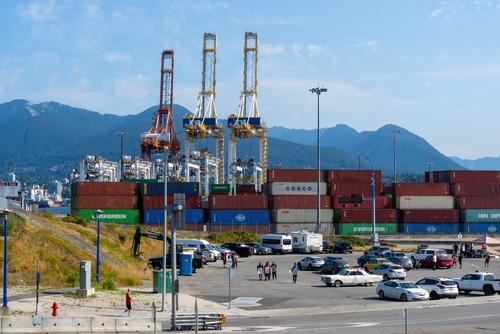With a looming strike by the International Longshoremen's Association (ILA), the U.S. economy faces potential widespread disruptions. As the union's contract with the U.S. Maritime Alliance (USMX) approaches its September 30, 2024 expiration, the ILA, representing 45,000 workers, has declared its readiness to strike on October 1 if negotiations fail to produce a new deal. The strike, which could affect 36 ports along the U.S. East and Gulf Coasts, would cripple key entry points for over 40% of the nation's imports, causing significant disruptions to shipping and supply chains.
At the heart of the dispute are wage demands. The ILA is pushing for substantial raises, mirroring the 32% wage increase secured by West Coast dockworkers in 2023. Negotiations have stalled, with the ILA arguing that the current offers are inadequate given the long hours and strenuous work conditions dockworkers endure. Meanwhile, the USMX insists it is ready to negotiate but claims the union has refused to engage in serious discussions in recent months.
October Surprise: What may happen to you when US ports go on strike pic.twitter.com/MM63NU1JPv
— SynCronus (@syncronus) September 25, 2024
A coalition of 177 trade associations has urged President Biden to intervene and prevent the strike from proceeding. However, the Biden administration has stated it will not invoke the Taft-Hartley Act, a federal law that could force a “cooling-off” period, preferring instead to encourage both sides to negotiate in good faith.
The strike could have profound effects on the U.S. economy. Analysts estimate that each day of a port shutdown would cost the economy $5 billion, affecting industries dependent on just-in-time delivery systems, such as manufacturing, agriculture, and retail. The timing is particularly concerning as retailers ramp up for the holiday shopping season. Companies like Amazon and Walmart are bracing for potential product shortages and price hikes, particularly for discretionary goods like electronics and luxury items.
JUST IN: Looming strike threatens to halt ports from Houston to Maine, potentially costing U.S. BILLIONS.
The strike could impact a wide range of goods, including apparel, footwear, fresh produce, meat, and automotive parts.
The ILA, representing over 40,000 workers, is seeking… pic.twitter.com/yUHTPcEaxi
— Hank ™ (@HANKonX) September 25, 2024
Experts warn that consumer prices could rise sharply if the strike extends for several days or weeks. Supply chain disruptions would exacerbate inflationary pressures, which have already begun to ease after months of skyrocketing prices. The ripple effects of such a strike could also delay mortgage rate cuts, further straining consumers' budgets in the coming months.
Although retailers have implemented contingency plans, including stockpiling goods and rerouting shipments, these measures come at a cost, which is likely to be passed on to consumers. As Jason Fisk, CEO of SalSon Logistics, noted, “Importers are actively implementing strategies to manage these risks, yet these solutions often come with their own high expenses, inevitably impacting consumer prices.” The Retail Industry Leaders Association (RILA) has described the potential strike as a "self-inflicted wound" to the economy, citing fears of empty shelves and significant delays in consumer goods delivery.
In addition to higher prices, experts predict long-term repercussions for the U.S. economy. According to industry insiders, the backlog created by the strike could take up to six days to clear for every day the ports are shut down. The disruption could push some businesses to relocate their operations overseas, seeking more reliable trade routes in the future.
With less than a week until the contract expires, all eyes are on the ongoing negotiations. If the parties fail to reach an agreement, consumers and businesses alike will face severe consequences that could last well into 2025. The potential strike has already caused jitters in the stock market, with some industries, such as retail and shipping, bracing for significant volatility.

